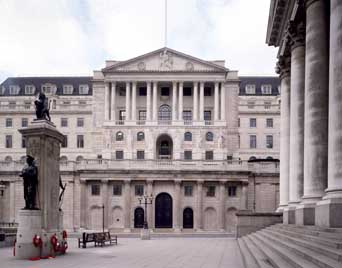The aggregate surplus of defined benefit (DB) pension schemes in the UK increased to £374.7bn at the end of October 2022, up from £374.5bn at the end of September 2022, the Pension Protection Fund’s (PPF) 7800 Index has revealed.
According to the index, total scheme assets experienced a 2.7 per cent increase over the month to £1,490.3bn, although this was more than offset by the 3.7 per cent increase in total scheme liabilities to £1,115.6bn.
This prompted a slight fall in the funding ratio from 134.8 per cent at the end of September 2022 to 133.6 per cent, although this still marks an improvement on the same time last year, with a funding ratio of 106.8 per cent recorded at the end of October 2021.
The number of schemes in deficit at the end of October 2022 increased from 746 to 756, with the deficit of the schemes in deficit also increasing from £5.3bn at the end of September 2022 to £5.8bn at the end of October 2022.
The number of schemes in surplus decreased correspondingly to 4,459, while the total surplus of schemes in surplus increased to £380.5bn as at the end of October 2022.
PPF chief finance officer and chief actuary, Lisa McCrory, noted that although volatility remained a key theme, this was broadly offset by increases in the asset values, noting that pension schemes in aggregate remain "in a much better position compared with this time last year".
However, she said that it is important that trustees and sponsors reflect on what this higher rate and inflationary environment means for their funding and investment strategy going forward.
This was echoed by, Standard Life senior business development manager, Rhian Littlewood, who suggested that next week’s statement from the Chancellor will be watched "carefully".
"The market is expecting a conservative approach to borrowing and spending commitments and if this isn’t borne out there could be further volatility," she continued.
“Looking forward, we anticipate many will look to lock in their position and secure the gains afforded by their funding position.
"As insurance rates remain competitive and desirable, more schemes are exploring their options, with the possibility of buyout now more possible than ever.”
Adding to this, Broadstone senior actuarial director, Jaime Norman, stated: “DB pension schemes have experienced significant volatility during the last month in the aftermath of the controversial mini budget.
“While the market has calmed and a sense of stability has returned, the long-term picture on schemes’ investment strategies is still uncertain as we await further data on liability-driven investment funds, which make up a significant proportion of UK pension scheme assets.
“Reassuring members that their pensions remain secure and payments are largely unaffected will be a key responsibility of schemes over the coming months given the level of noise that accompanied the market fallout.
"The wider improvement in funding levels seen throughout the year also means that de-risking opportunities are more affordable than previously thought.”
Latest News
-
OBR analysis reveals potential impact of salary sacrifice changes
-
Strong funding levels continue as endgame landscape reshaped by innovation
-
Harwich Haven Authority Pension Fund finalises £45m buy-in with Royal London
-
GAD publishes LGPS gender pension gap reporting guidance
-
DB scheme funding levels continue to improve heading into 2026
-
News in brief - 6 February 2026
Private markets – a growing presence within UK DC
Laura Blows discusses the role of private market investment within DC schemes with Aviva Director of Investments, Maiyuresh Rajah
The DB pension landscape
Pensions Age speaks to BlackRock managing director and head of its DB relationship management team, Andrew Reid, about the DB pensions landscape
Podcast: From pension pot to flexible income for life

Podcast: Who matters most in pensions?

In the latest Pensions Age podcast, Francesca Fabrizi speaks to Capita Pension Solutions global practice leader & chief revenue officer, Stuart Heatley, about who matters most in pensions and how to best meet their needs
© 2019 Perspective Publishing Privacy & Cookies










Recent Stories